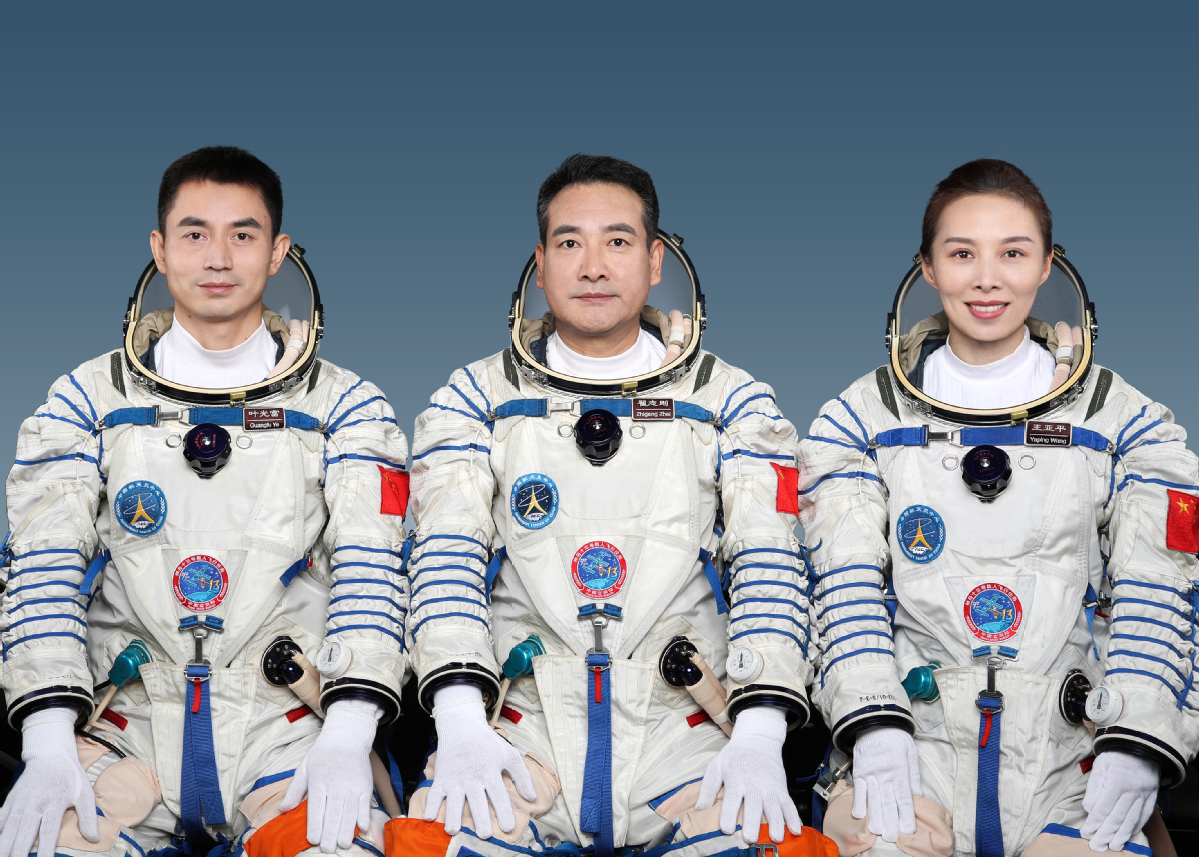Astronauts to celebrate Lunar New Year in space
Astronauts to celebrate Lunar New Year in space

Crew members of the upcoming Shenzhou XIII mission will become the first Chinese to spend the nation's most important festival-Spring Festival, or Chinese Lunar New Year-in outer space.
The six-month journey will last from mid-October to mid-April; Spring Festival will be in early February. Chinese tradition holds that people should return home and spend Spring Festival with their family.
"Our mission will be the first time for (a group of) Chinese people to celebrate Spring Festival in space," crew member Wang Yaping said at a meeting with reporters on Thursday afternoon at the Jiuquan Satellite Launch Center in northwestern China's Gobi Desert.
"It's my understanding that the mission command has prepared a large package of New Year gifts for us, but we don't know what they are," she added. "I am really looking forward to enjoying the special festival, and I am sure the gifts will be full of surprises and wonders.
"Like all Chinese people, we, the crew members, will count down to the New Year and will present our best wishes to the motherland and to you," Wang said.
Wang took part in the Shenzhou X mission, which lasted nearly 15 days, in June 2013. During the mission, she gave a 40-minute space lecture from inside the Tiangong I experimental module. The event, which featured some physics experiments, was watched by more than 60 million Chinese students from around 80,000 schools.
Wang said at the meeting that she will also become a "space teacher" during the coming flight.
"I will soon fly into space with my students' dreams and aspirations. This time, I will live and work inside our own space station. So you, the students, can tell me what you wish to know and see the most and I will take you to explore and discover and help you to realize your aspirations."
Lin Xiqiang, deputy director of the China Manned Space Agency, said at a news conference before the meeting that as a national space laboratory, the Tiangong space station will have abundant, unique resources that can be used for education and science popularization.
He said the station is greatly attractive to young people and will serve as a platform to encourage them to explore the space and science.
"We have made plans for science lectures that will be more diversified and interesting," Lin said.






